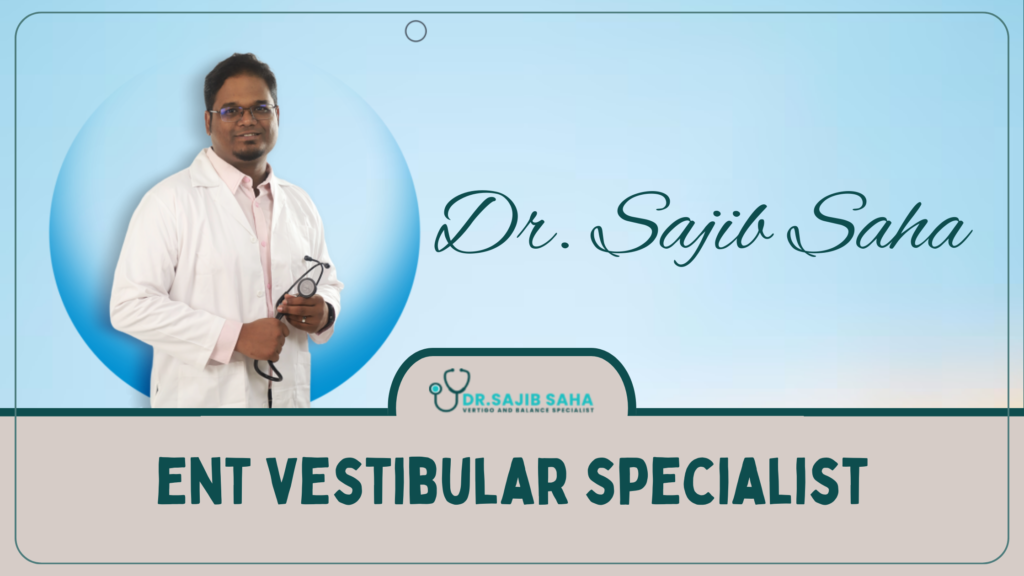Quick Summary
- An ENT Vestibular Specialist in Dhaka diagnoses and treats balance disorders, vertigo, and dizziness.
- Common conditions include BPPV, vestibular neuritis, Ménière’s disease, and anxiety-related dizziness.
- Advanced tests like VNG, vHIT, and audiometry are available in Dhaka.
- Early diagnosis prevents chronic imbalance and improves quality of life.
- Specialized vestibular rehabilitation significantly speeds recovery.
Who should you consult for vertigo and balance disorders in Dhaka?
If you experience dizziness, spinning sensations, or loss of balance, an ENT Vestibular Specialist in Dhaka can diagnose inner-ear and nerve-related causes and provide targeted treatment.
Introduction: Why Balance Disorders Are More Common Than You Think
Dizziness is not just “weakness” or “low pressure.”
In Dhaka, thousands of people suffer silently from undiagnosed balance disorders—often mistreated as gastric, anxiety, or neurological issues.
An ENT Vestibular in Dhaka focuses specifically on the inner ear-brain balance system, which general medicine often overlooks.
If symptoms last more than a few days, ignoring them can slow down the healing process and make it harder.
What Is a Vestibular System?
The vestibular system is the inner-ear sensory system that controls balance, posture, and eye movement coordination.
Balance depends on inner-ear signals, vision, and brain integration—damage to any of these can cause dizziness.
What Does an ENT Vestibular Specialist Do?
An ENT vestibular specialist is an ENT doctor with advanced training in balance science and neuro-otology.
They diagnose and treat:
- Vertigo
- Chronic dizziness
- Motion sensitivity
- Imbalance while walking
- Inner ear infections affecting balance
They treat dizziness caused by inner-ear, vestibular nerve, and balance pathway disorders.
Common Conditions Treated by an ENT Vestibular Specialist in Dhaka
1. Benign Paroxysmal Positional Vertigo (BPPV)
BPPV occurs when calcium crystals move into the wrong inner-ear canal.
Symptoms:
- Sudden spinning when lying down
- Vertigo on turning the head
- Nausea without hearing loss
BPPV is common, easily treatable, and often cured in 1–3 sessions.
2. Vestibular Neuritis
Inflammation of the vestibular nerve—usually viral.
Key signs:
- Severe vertigo for days
- No hearing loss
- Difficulty standing
Early steroid use and vestibular rehab lead to faster recovery.
3. Ménière’s Disease
A chronic inner-ear disorder involving fluid imbalance.
Classic triad:
- Vertigo
- Hearing loss
- Ear fullness
Diet control + medication can reduce attacks significantly.
4. Anxiety-Related & Functional Dizziness
Not “imaginary”—brain balance processing is altered.
Common in:
- Students
- Office workers
- High-stress individuals
Vestibular therapy + stress management works better than sedatives alone.
Why Choose an ENT Vestibular Specialist in Dhaka Instead of a General ENT?
| Feature | General ENT | Vestibular Specialist |
| Balance testing | Basic | Advanced (VNG, vHIT) |
| Vertigo maneuvers | Limited | Specialized |
| Rehab planning | Rare | Standard |
| Chronic dizziness | Often misdiagnosed | Properly managed |
Specialists reduce recurrence and unnecessary medication.
Advanced Vestibular Tests Available in Dhaka
Common Diagnostic Tools
- VNG (Videonystagmography)
- vHIT (Video Head Impulse Test)
- Pure Tone Audiometry
- Posturography
According to NIH research on balance disorders, objective vestibular testing significantly improves diagnostic accuracy.
Modern vestibular tests identify the exact side and cause of balance loss.
Treatment Options Offered by ENT Vestibular Specialists
1. Canalith Repositioning Maneuvers (CRM)
- Epley
- Semont
- BBQ roll
Success rate: 85–95%
2. Medication (Short-Term Only)
Used for:
- Acute vertigo
- Severe nausea
Long-term use delays brain compensation.
3. Vestibular Rehabilitation Therapy (VRT)
Customized exercises to retrain the brain.
Benefits:
- Faster recovery
- Reduced relapse
- Better walking confidence
VRT is the gold standard for long-term balance recovery.
When Should You See an ENT Vestibular Specialist in Dhaka?
See a specialist if:
- Dizziness lasts > 3 days
- Recurrent vertigo attacks
- Balance worsens in crowds
- Falls or near-falls occur
You can explore balance disorder management options on the Treatments for Balance Disorders page.
How to Book an ENT Vestibular Consultation in Dhaka
Most clinics offer:
- Appointment-based visits
- Diagnostic testing
- Therapy planning
📞 For personalized consultation, visit the Contact Page.
Early booking prevents chronic disability.
For a broader understanding of dizziness and balance care, explore the Home Page – Complete Balance Care Guide.
Frequently Asked Questions
Is vertigo a neurological problem?
Vertigo usually originates from the inner ear, not the brain.
How long does vestibular treatment take?
Most patients improve within 2–6 weeks.
Can stress cause balance problems?
Yes, stress disrupts brain-vestibular integration.
Is vestibular therapy painful?
No, exercises are gentle and progressive.
Do balance disorders come back?
Recurrence is low with proper rehabilitation.
What Matters Most?
If dizziness is affecting your work, studies, or confidence, don’t normalize it.
An ENT Vestibular Specialist provides:
- Accurate diagnosis
- Evidence-based treatment
- Long-term balance recovery
Learn more about professional balance care from the official resource on balance treatment and take the first step toward stable, confident movement.
